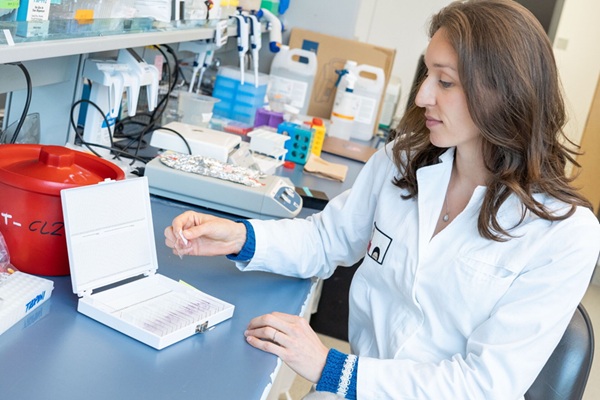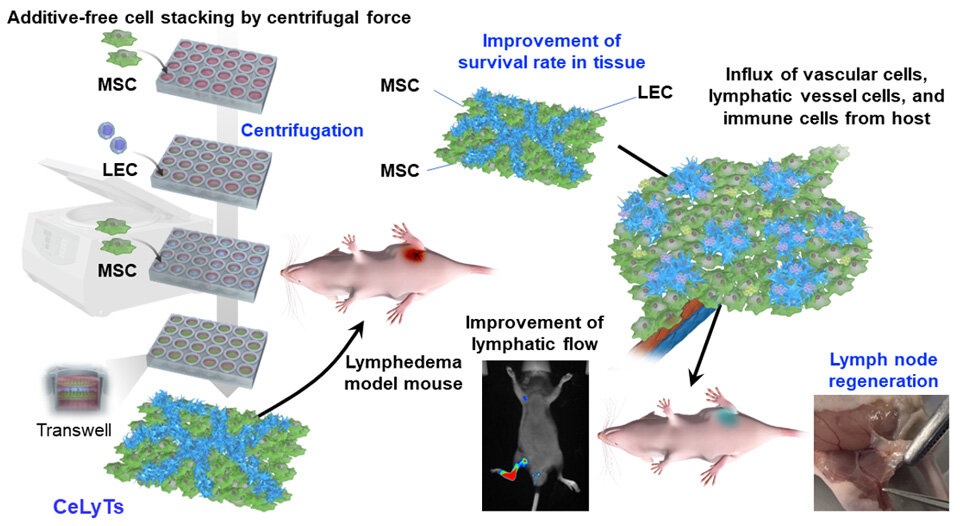Robotic Next Generation Sequencing Platform Accurately Screens Thousands of COVID-19 Samples at Once
|
By HospiMedica International staff writers Posted on 04 Mar 2021 |
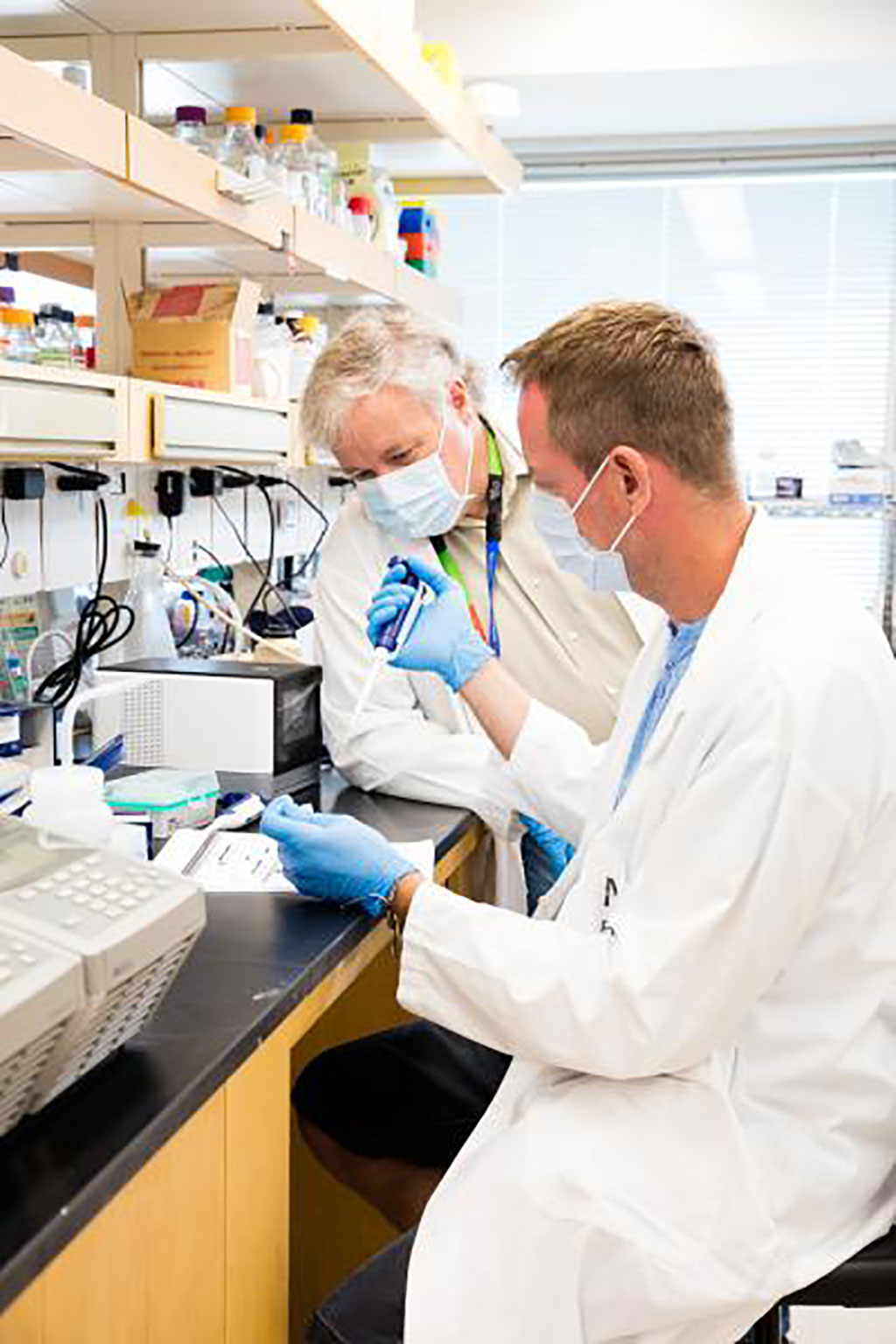
Image: Jeff Wrana, left, is seen in this undated file photo at the Lunenfeld-Tanenbaum Research Institute in Toronto, Canada (Photo courtesy of Sinai Health)
A robotics platform to screen thousands of COVID-19 samples at once has the potential to revolutionize how labs track the spread of viruses and other pathogens, according to new findings.
The study by researchers from the Lunenfeld-Tanenbaum Research Institute (LTRI) at Sinai Health (Toronto, ON, Canada) found that their next-generation, ultra-high-throughput sequencing platform, called C19-SPAR-Se, has a sensitivity rate greater than 95% in positive cases during peak onset. The platform is also cost-effective. The study notes it only costs about USD 8 per test when running thousands of samples at once, as the cost per sample decreases due to economies of scale.
"Identifying positive samples quickly and accurately is critical in beating this pandemic," said Dr. Jeff Wrana, senior investigator at the LTRI and professor in the Department of Molecular Genetics at the University of Toronto. "With new and potentially dangerous variants now circulating, this is a platform that is scalable, automated and capable of analyzing thousands of COVID-19 patient samples in a single instrument run."
Related Links:
Lunenfeld-Tanenbaum Research Institute
The study by researchers from the Lunenfeld-Tanenbaum Research Institute (LTRI) at Sinai Health (Toronto, ON, Canada) found that their next-generation, ultra-high-throughput sequencing platform, called C19-SPAR-Se, has a sensitivity rate greater than 95% in positive cases during peak onset. The platform is also cost-effective. The study notes it only costs about USD 8 per test when running thousands of samples at once, as the cost per sample decreases due to economies of scale.
"Identifying positive samples quickly and accurately is critical in beating this pandemic," said Dr. Jeff Wrana, senior investigator at the LTRI and professor in the Department of Molecular Genetics at the University of Toronto. "With new and potentially dangerous variants now circulating, this is a platform that is scalable, automated and capable of analyzing thousands of COVID-19 patient samples in a single instrument run."
Related Links:
Lunenfeld-Tanenbaum Research Institute
Latest COVID-19 News
- Low-Cost System Detects SARS-CoV-2 Virus in Hospital Air Using High-Tech Bubbles
- World's First Inhalable COVID-19 Vaccine Approved in China
- COVID-19 Vaccine Patch Fights SARS-CoV-2 Variants Better than Needles
- Blood Viscosity Testing Can Predict Risk of Death in Hospitalized COVID-19 Patients
- ‘Covid Computer’ Uses AI to Detect COVID-19 from Chest CT Scans
- MRI Lung-Imaging Technique Shows Cause of Long-COVID Symptoms
- Chest CT Scans of COVID-19 Patients Could Help Distinguish Between SARS-CoV-2 Variants
- Specialized MRI Detects Lung Abnormalities in Non-Hospitalized Long COVID Patients
- AI Algorithm Identifies Hospitalized Patients at Highest Risk of Dying From COVID-19
- Sweat Sensor Detects Key Biomarkers That Provide Early Warning of COVID-19 and Flu
- Study Assesses Impact of COVID-19 on Ventilation/Perfusion Scintigraphy
- CT Imaging Study Finds Vaccination Reduces Risk of COVID-19 Associated Pulmonary Embolism
- Third Day in Hospital a ‘Tipping Point’ in Severity of COVID-19 Pneumonia
- Longer Interval Between COVID-19 Vaccines Generates Up to Nine Times as Many Antibodies
- AI Model for Monitoring COVID-19 Predicts Mortality Within First 30 Days of Admission
- AI Predicts COVID Prognosis at Near-Expert Level Based Off CT Scans
Channels
Artificial Intelligence
view channelCritical Care
view channel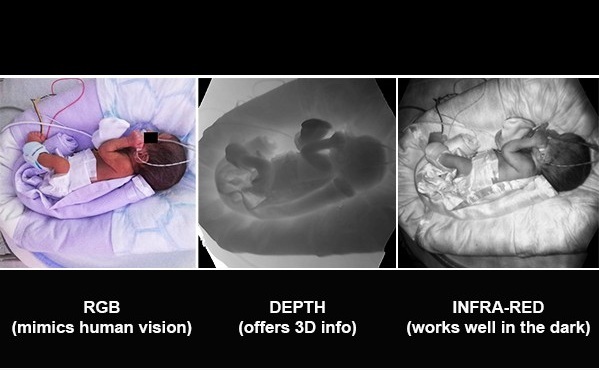
Intelligent Camera System Continuously Monitors Premature Babies in NICU
The neonatal period is a critical stage of life, with premature babies facing a higher risk of short- and long-term complications that require close observation. In neonatal intensive care units (NICUs),... Read more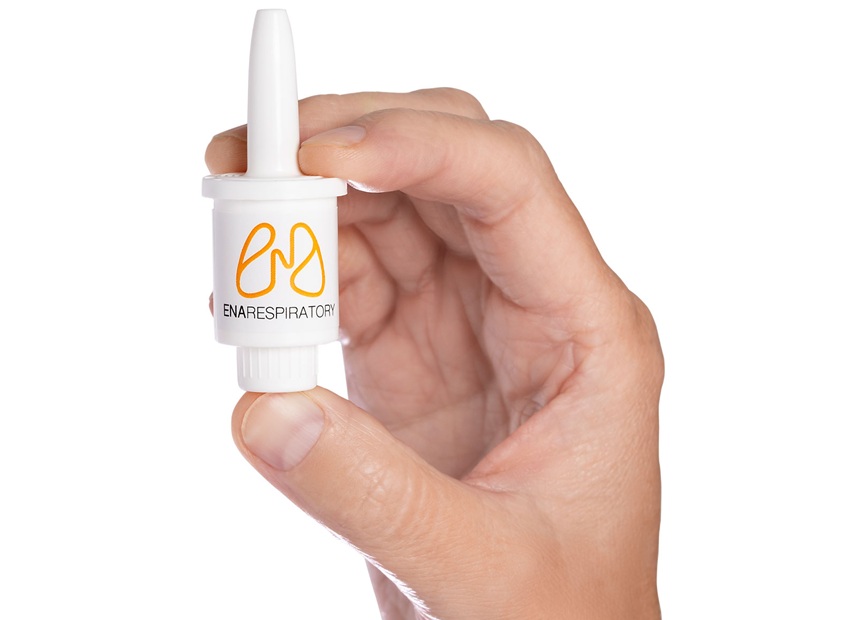
Intranasal Spray to Prevent Illnesses from Respiratory Viruses
Respiratory viruses such as influenza and COVID-19 hospitalize more than one million people in the U.S. each year, with many infections spreading through close contact in households, schools, and workplaces.... Read moreSurgical Techniques
view channel
Surgical Innovation Cuts Ovarian Cancer Risk by 80%
Ovarian cancer remains the deadliest gynecological cancer, largely because there is no reliable screening test, and most cases are diagnosed at advanced stages. Thousands of patients die each year as treatment... Read more
New Imaging Combo Offers Hope for High-Risk Heart Patients
Patients with type 2 diabetes often develop complex, severe coronary artery disease involving multiple narrowed or blocked arteries, making complete revascularization difficult. Without detailed functional... Read morePatient Care
view channel
Revolutionary Automatic IV-Line Flushing Device to Enhance Infusion Care
More than 80% of in-hospital patients receive intravenous (IV) therapy. Every dose of IV medicine delivered in a small volume (<250 mL) infusion bag should be followed by subsequent flushing to ensure... Read more
VR Training Tool Combats Contamination of Portable Medical Equipment
Healthcare-associated infections (HAIs) impact one in every 31 patients, cause nearly 100,000 deaths each year, and cost USD 28.4 billion in direct medical expenses. Notably, up to 75% of these infections... Read more
Portable Biosensor Platform to Reduce Hospital-Acquired Infections
Approximately 4 million patients in the European Union acquire healthcare-associated infections (HAIs) or nosocomial infections each year, with around 37,000 deaths directly resulting from these infections,... Read moreFirst-Of-Its-Kind Portable Germicidal Light Technology Disinfects High-Touch Clinical Surfaces in Seconds
Reducing healthcare-acquired infections (HAIs) remains a pressing issue within global healthcare systems. In the United States alone, 1.7 million patients contract HAIs annually, leading to approximately... Read moreHealth IT
view channel
EMR-Based Tool Predicts Graft Failure After Kidney Transplant
Kidney transplantation offers patients with end-stage kidney disease longer survival and better quality of life than dialysis, yet graft failure remains a major challenge. Although a successful transplant... Read more
Printable Molecule-Selective Nanoparticles Enable Mass Production of Wearable Biosensors
The future of medicine is likely to focus on the personalization of healthcare—understanding exactly what an individual requires and delivering the appropriate combination of nutrients, metabolites, and... Read moreBusiness
view channel
Medtronic to Acquire Coronary Artery Medtech Company CathWorks
Medtronic plc (Galway, Ireland) has announced that it will exercise its option to acquire CathWorks (Kfar Saba, Israel), a privately held medical device company, which aims to transform how coronary artery... Read more
Medtronic and Mindray Expand Strategic Partnership to Ambulatory Surgery Centers in the U.S.
Mindray North America and Medtronic have expanded their strategic partnership to bring integrated patient monitoring solutions to ambulatory surgery centers across the United States. The collaboration... Read more
FDA Clearance Expands Robotic Options for Minimally Invasive Heart Surgery
Cardiovascular disease remains the world’s leading cause of death, with nearly 18 million fatalities each year, and more than two million patients undergo open-heart surgery annually, most involving sternotomy.... Read more















